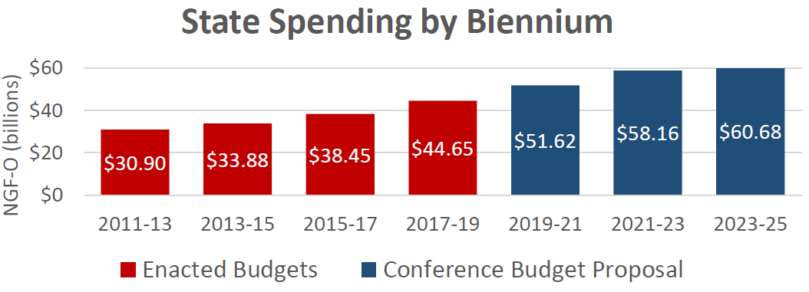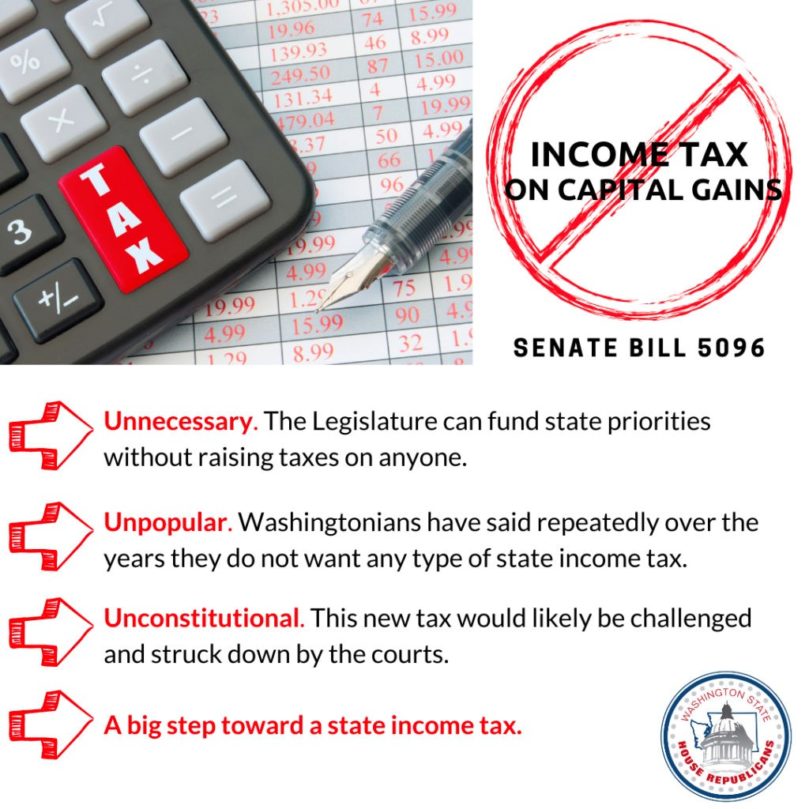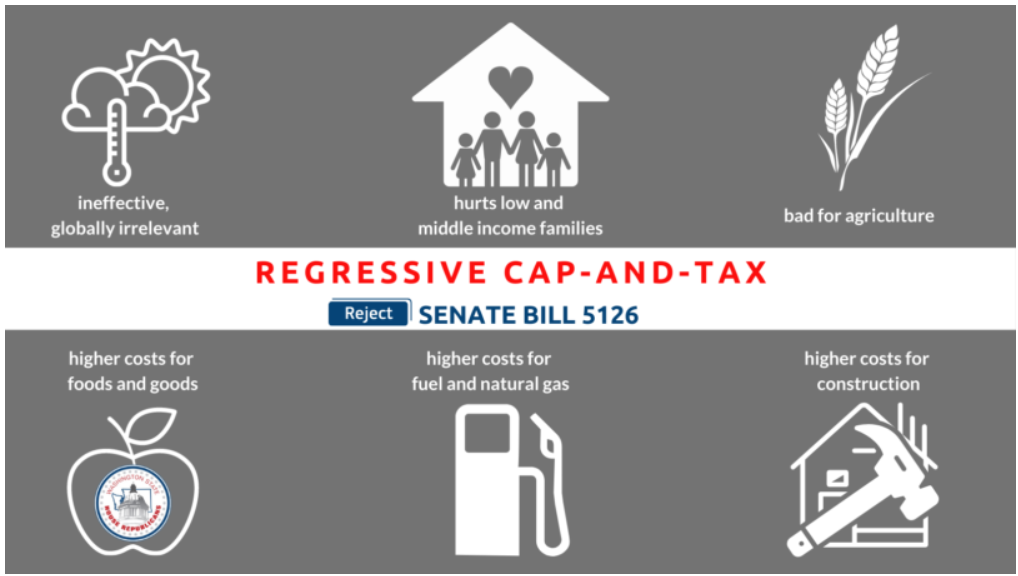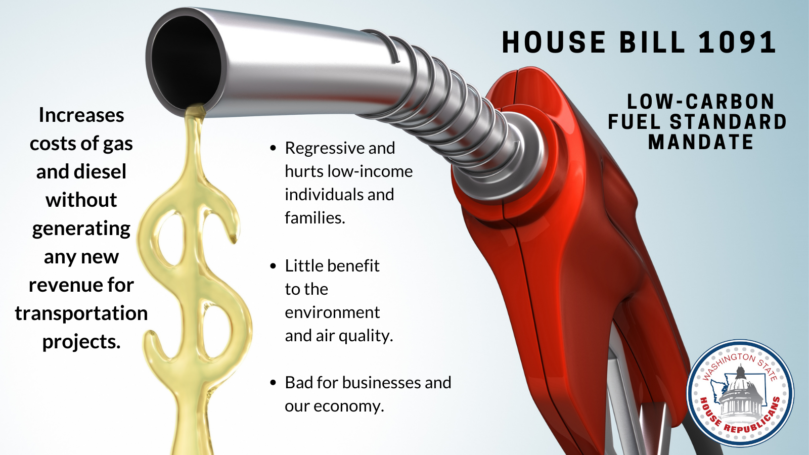
WA Operating budget has nearly doubled in 10 years
Dear Friends and Neighbors,
My first session as your 4th District state representative ended on April 25, 105 days after it began on Jan. 11. I am honored and proud to serve as your state representative. It was a difficult session serving virtually. We made it work, but it was disappointing not having an opportunity to meet in person with constituents, colleagues, or hold actual public hearings and debate and vote on the House floor. The eye-to-eye contact and the sit-down conversations to discuss policy matters and ask questions was certainly missing.
There are a number of issues to update you on this session. In this end-of-session review I will touch on the three budgets and some of the major policy issues that will impact our communities and Washington state. Please let me know if you have any questions.
Operating budget has nearly doubled in 10 years
The $58.9 billion operating budget does some good things for the state of Washington. It includes priorities found in the House Republican operating budget framework such as the Working Families Tax Credit, replenishing the Unemployment Insurance Trust Fund, and long-term forest health.
However, I could not support the operating budget for the following reasons:
Lack of transparency: The operating budget was negotiated behind closed doors without Republicans in the room. The 1,102-page final spending plan was unveiled on the last Saturday of session, we voted on it the next day, and then we adjourned. This gave Republicans and the public only 24 hours to review it.
Taxes included: It unnecessarily increases taxes, including a new $100 surcharge on recorded documents and a new capital gains income tax. We have been fortunate our taxpayer revenues have been resilient through the pandemic, and a budget could have easily been drafted with the appropriate priorities and not raise taxes.
Raids the rainy-day fund: The majority party takes $1.8 billion out of the state’s voter-approved rainy-day fund, or the Budget Stabilization Account. They were able to circumvent the normal two-thirds vote of the Legislature needed to tap the rainy-day fund because of low employment growth during the pandemic, needing only a simple majority vote. This seems to violate the spirit, and maybe the law, of the voter-approved, constitutionally-protected, rainy-day fund.
Unsustainable: It increases spending by $7 billion, or more than 13% over the previous biennium. Spending has increased 74% since 2013, and as you can see by the chart, our budget has nearly doubled since 2011. Our revenues have exceeded expectations through the pandemic, but many businesses and industries have a long way to go to recover and we still face a lot of economic uncertainty. This plan is not fiscally responsible.

Transportation budget
I supported the $11.8 billion biennial transportation budget. It protects current projects and provides some funding for the maintenance and preservation needs of our transportation systems. It includes more than $1 billion in federal pandemic funds to go toward fish passage barrier removal and to backfill holes in the budget due to toll and fare reductions.
Capital budget
The Legislature passed a bipartisan capital budget, securing more than $16.8 million in funds for community projects and other infrastructure needs in the 4th District. These are taxpayer dollars coming at a time when your communities and economy need it as we come out of restrictions of the pandemic.
Projects in the 4th District include:
- Apprenticeship Center in Spokane, $3.36 million;
- Spokane County Library District (Spokane Valley), $2 million;
- Spokane River Centennial Trail Phase 1 renovation, $1.98 million;
- Antoine Peak Phase 4 Etter Ranch, $1.06 million;
- Spokane Valley Boys and Girls Club, $1.03 million;
- Doris Morrison Learning Center (Greenacres), $1.03 million;
- Flora Road River Trail Property, $1 million;
- Make Beacon Hill Public, $1 million;
- Liberty Lake Regional Park Phase 1 and water access, $906,000;
- Mt. Spokane Bear Creek, $816,000;
- Project Chairlift: Lifting Up Washington State Chair 1 (Mead), $750,000;
- Spokane Valley Fairgrounds Exhibition Center, $750,000;
- Boys and Girls Club of Spokane County, $600,000;
- Felts Field Gateway Project (Spokane), $400,000; and
- Colbert Landfill risk evaluation, $18,000.
Capital gains income tax becomes law
The governor has signed the capital gains income tax, Senate Bill 5096. I also believe this is a step toward a state income tax. Two lawsuits have been filed to challenge the measure. Public records show Democratic lawmakers want these suits so if a capital gains income tax is upheld, they can seek to impose a broad-based statewide graduated income tax that everyone would pay. This income tax is unnecessary, unpopular, unreliable and likely unconstitutional.

Good bills that passed
HB 1410, protecting taxpayers from home foreclosure. I co-sponsored this legislation, introduced by Rep. Mike Volz. It gives delinquent property taxpayers a chance to get caught up again by paying any amount at any time along with a 9% interest rate, instead of 12%.
HB 1170, building economic strength through manufacturing. The legislation provides a framework to add 300,000 new manufacturing jobs and doubles the number of small manufacturing firms and the number of women- and minority-owned manufacturing firms over the next 10 years.
HB 1114, encouraging utility mitigation of urban heat island effects. It incentivizes the strategic planting of trees in urban coastal areas in Washington state to reduce the negative effects of urban heat islands in our coastal cities.
HB 1137, elevating road maintenance and preservation in transportation planning. State transportation agencies must perform their powers, duties, and functions with preservation and safety as priorities among the state’s transportation system policy goals.
HB 1001, establishing a law enforcement professional development outreach grant program. The new law works toward transitioning law enforcement into more community-oriented policing, rather than the current reactionary model.
Cap and tax scheme
The cap and trade, or “cap and tax” scheme, proposed by the governor, Senate Bill 5126, has been part of his climate change agenda for some time. Despite bipartisan opposition, the majority party passed the cap and tax bill in the last hours off the session.
The legislation establishes a program for greenhouse gas emissions to be implemented by the Department of Ecology. Washington state already emits less than three-tenths of one percent of global greenhouse gas emissions.
We hear a lot about our regressive tax structure, but this is a regressive tax that will increase the cost of gas, food, goods, services, and heating on those who can least afford it, the low- and middle-income families.

Low-carbon fuel standard (LCFS)
Another piece of the governor’s climate change agenda that passed on the last day of session, again with bipartisan opposition, was the LCFS mandate, House Bill 1091. The legislation authorizes the Department of Ecology to create a clean fuels program by rule to reduce the carbon intensity of transportation fuels. Once again, we have a state agency making the rules for a controversial and expensive program.
This mandate will increase the cost of gas and diesel without generating any new revenue for transportation projects, and do very little to improve air quality. This will also impact our low- and middle-income citizens, going against what the other side says regarding our regressive tax structure.
There continues to be talk of a potential gas tax increase with a transportation package in the near future. Add that to the costs associated with cap-and-tax and a low-carbon fuel standard, and folks could end up paying up to 55 cents more for a gallon of gas.

The governor has signed these bills into law, but vetoed provisions in both measures that tied the legislation’s taking effect to a transportation-funding package. He infuriated lawmakers with his actions. Legal challenges are already expected.
- Lawmakers disappointed by Gov. Inslee’s veto pen (MyNorthwest)
- Tensions swirl as Inslee issues partial vetoes of “Grand Bargain” provisions (Washington State Wire)
- Inslee signs major climate bills, but not without partial vetoes; Legislative leadership threaten lawsuit (The Spokesman-Review)
Emergency powers reform shutdown
The Legislature adjourned without addressing one of the most pressing issues before us this session – emergency powers reform. Unfortunately, the majority party was not interested in addressing this issue.
One of the reasons they gave for voting down our efforts was that we were circumventing the rules or cutoff date to bring up the emergency powers bill we put forward. That would create an expectation that could be done for other legislation. However, the reality is, we had bills ready to go on the first day of session. If they truly wanted to address this issue, they had all session to do so, and work with us.
While the governor has advanced all counties to Phase 3, and we are on track to be fully reopened on June 30, what happens if there are any setbacks? We would once again be under one-person control. Our state government was not intended to operate in this manner.
Since we adjourned, some counties have become increasingly frustrated with Gov. Inslee’s actions. (See articles below.) More reasons that we should have addressed this issue during the session. Hopefully, we are moving forward and this won’t be an issue in the near future, but it still needs to be addressed – like many other states did during the pandemic.
- Democrats threaten Inslee with special session over state’s reopening plan (KCPQ TV)
- ‘The goalpost has moved too many times’: Petition calls on Gov. Inslee to reopen Washington by June 15 (KREM TV)
Blake decision
In February, the state Supreme Court ruled (State v. Blake) Washington’s law prohibiting the simple possession of drugs is unconstitutional. The ruling meant thousands of convicted drug felons would be eligible for release into our communities.
To address the court’s decision, Republicans introduced five bills. Unfortunately, none were given a public hearing. An agreement was reached on Senate Bill 5476 late in the session, which makes simple drug possession a misdemeanor and funds development of a statewide framework for treatment and recovery. I could not support the bill. It does not address the problem and that was unacceptable to me. This is a public safety issue for our communities and our streets, as well as for those stuck in the cycle of drug abuse.
Keep in touch
I am your state representative year-round, so please do not hesitate to contact me with any concerns, questions or issues you may be having related to state government. Your input helps me represent you. Please feel free to contact my office.
Also, you can keep track of state and legislative news even though the Legislature has adjourned. I have listed some websites/news services I encourage you to follow during the interim to keep up on what is happening with our state government.
- The Washington State Ledger: This is a legislative news aggregator administered by state House Republicans. It is a great source for information related to state government, public policy and the legislative process. It is updated frequently.
- Capitol Buzz: This daily electronic clip service offers headlines and stories from media outlets throughout the state, including newspaper, radio, and television.
- The Current: This an online legislative publication from the Washington House Republicans that is sent out every week during the legislative session and every month during the interim.
Thank you for allowing me to serve you!
Sincerely,

Rob Chase
State Representative Rob Chase, 4th Legislative District
representativerobchase.com
John L. O’Brien Building | P.O. Box 40600 | Olympia, WA 98504-0600
rob.chase@leg.wa.gov
360-786-7984 | Toll-free: (800) 562-6000